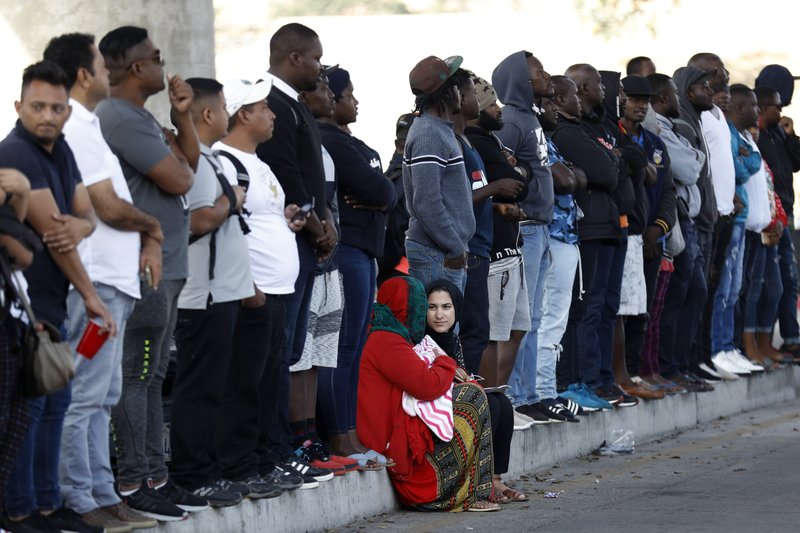TIJUANA, Mexico -- Hundreds of migrants showed up at border crossings Tuesday in hopes of getting into the U.S. but faced the likelihood of being turned away under a new asylum rule that upends long-standing protections for people fleeing violence and oppression in their homelands.
The policy went into effect Tuesday but drew two swift lawsuits from migrant advocacy groups in federal courts, one in San Francisco and one in Washington, D.C.
"This is the [President Donald] Trump administration's most extreme run at an asylum ban yet," said Lee Gelernt of the American Civil Liberties Union, an attorney on the San Francisco lawsuit. "It clearly violates domestic and international law and cannot stand."
Under the rules, migrants who pass through another country on their way to the U.S. must apply for -- and be denied -- asylum in that country before they are eligible to apply in the United States. Most of the migrants arriving at the border this year passed through Mexico -- including Central Americans, Africans, Cubans and Haitians.
At the crossing in Tijuana, 12 people whose numbers were first on a waiting list to enter through a San Diego border crossing were escorted behind a metal gate to a white van that left minutes later to turn them over to U.S. authorities.
Ndifor Gedeon, 27, arrived in Tijuana nearly three months ago with the hope of seeking asylum in the U.S. after being jailed in Cameroon by a government that has been going after the African nation's English-speaking minority.
He was rethinking those plans after hearing that he may not have a chance at getting asylum because of the new policy and that if his case is denied, he will be deported to Cameroon.
"I feel sick," he said. "If I am sent back to Cameroon, I'd lose my life. The situation is very horrible."
He speaks no Spanish and does not feel safe in Tijuana, which has one of the highest homicide rates in Mexico. Even so, he prefers Tijuana to returning to Cameroon.
At another crossing in Ciudad Juarez, Mexico, 10 Cuban asylum seekers were called by Mexican officials and led across the Paso Del Norte Bridge to El Paso, Texas, where they were handed over to Customs and Border Protection officers. They were taken to a room where their possessions were searched, laid out on a table and bagged.
The migrants will still go through the normal first steps of requesting asylum but will face a higher bar to be allowed in the country.
Lawyers who represent Cuban migrants say that they are not deportable because Cuba will not accept them.
"I'd rather be in prison the rest of my life than go back to Cuba," said Dileber Urrista Sanchez, who had hoped his number would be called Tuesday but who was further down the list.
Sanchez, 35, has waited with his wife in Juarez for the past two months, renting a room with money his mother sends him from Las Vegas.
He said his mother left Cuba years ago because she was part of an opposition party. In retaliation, he said, the government took away his job as a chauffeur, and he and his wife had been imprisoned for days at a time for being "untrustworthy."
He criticized the Trump administration's new policy, pointing out that the first country he was able to reach after leaving Cuba was Nicaragua.
"How are we going to apply for asylum in Nicaragua when it's just as communist?" he said.
Information for this article was contributed by Colleen Long, Michael Balsamo and Julie Watson of The Associated Press; and by Miriam Jordan of The New York Times.
A Section on 07/17/2019
